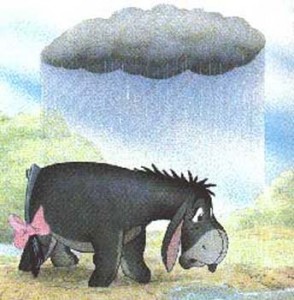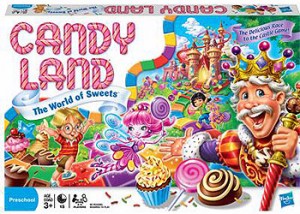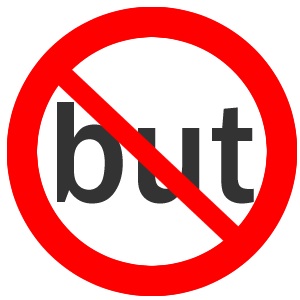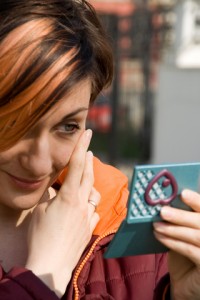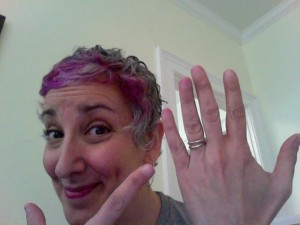“Good morning, Eeyore,” said Pooh.
“Good morning, Pooh Bear,” said Eeyore gloomily. “If it is a good morning, which I doubt,” said he.
“Why, what’s the matter?”
“Nothing, Pooh Bear, nothing. We can’t all, and some of us don’t. That’s all there is to it.”
“Can’t all what?” said Pooh, rubbing his nose.
“Gaiety. Song-and-dance. Here we go round the mulberry bush.”
– A.A. Milne, from “Winnie-the-Pooh”
Awfullers. It’s a term a friend of mine coined for people who have the unique capacity to take any shining, beautiful, or joyful moment and make it … well … awful. These people are the Eeyores of life. You remember the old, grey donkey from Winnie-the-Pooh who takes any kind or pleasant interaction and turns it into life sucking gloom-and-doom? Eeyore is a classic awfuller. Any conversation, however kind and well-intentioned quickly falls off a cliff and into an abyss of despair.
Awfullers do what they do because it gives them power. They are conversation-stoppers. They are joy-inhibitors. They take a special pride in wiping that ridiculous smile off your face. They have an impact on the world and they know it.
I’ll bet you dollars to donuts that have at least one awfuller in your life. These are the people who have the capacity to suck the joy out of the air within a 100 foot radius of wherever they are standing. You see them coming down the bread aisle of the grocery store and you make a beeline for frozen foods for fear that whatever grains of sweetness you have accumulated during the day are about to be greedily and ungratefully devoured.
We can actually learn an important lesson from the awfullers of the world – because in the strictest sense – they are powerful, transformational figures. They take joy and transform it to sorrow. They take happiness and transform it into worry. They take good will and transform it into animosity. They take hope and transform it into doubt. They have power to transform our positive inner-states and they are not afraid to use that power.
We have that same tranformative power within us. But instead of being awfullers, we can become wonderfullers.
Wonderfullers look for the seed of light within every moment and seek to liberate it. Wonderfullers take the hard seeds of difficult moments and water them with compassion, so that they soften and stretch toward the light. Wonderfullers wrap cold moments in warmth and bring them to life. Wonderullers heal the hurts of the past by giving them a place to rest and room to breathe. Unlike their awfuller counterparts who take a special pleasure in watching the happiness drain from your face, wonderfullers patiently add oxygen to the spark of light that each person carries and take pleasure in the life-giving fire that emerges.
Awfullers try to drag everyone down to their level of misery, because they are lonely. They need companionship and the only way they can find it is by pulling others down into their little dark hole.
Wonderfullers know that they are part of a living miracle: an intricate and infinite web of life. And they seek to connect others to it. Even the awfullers.

